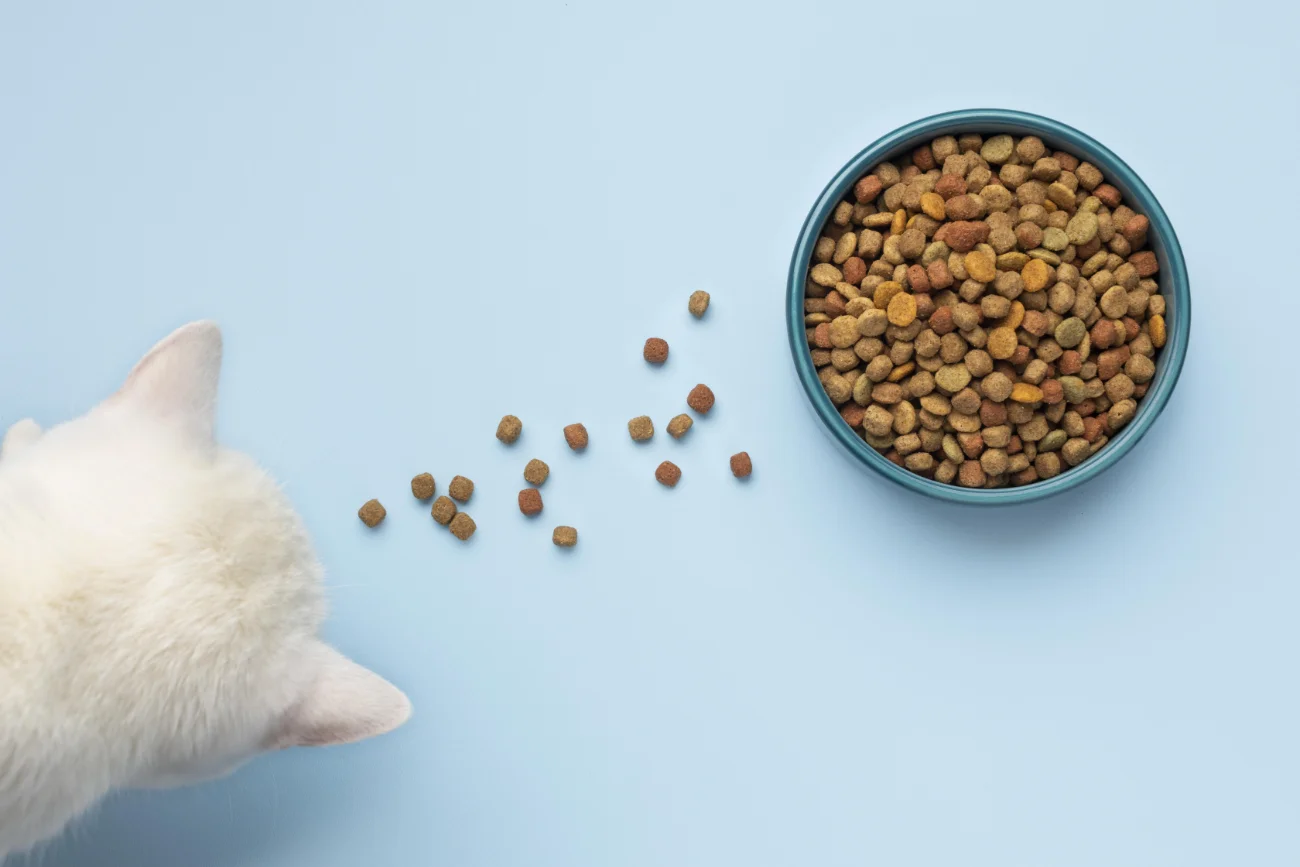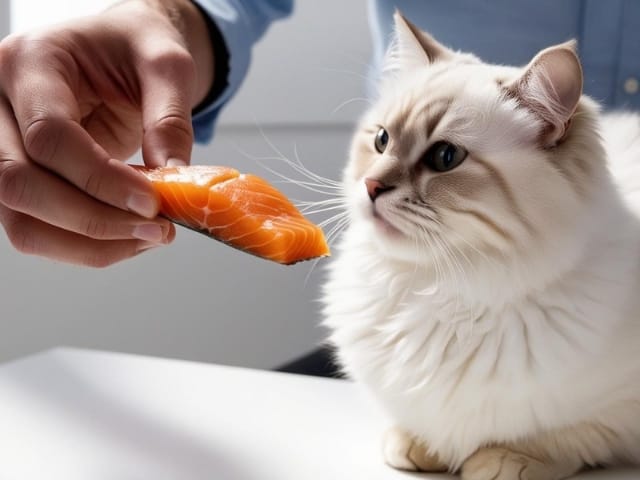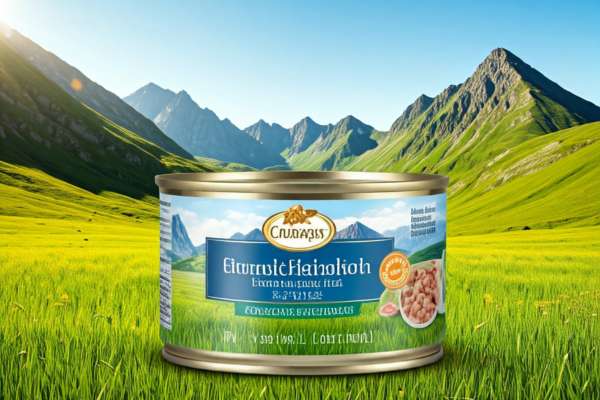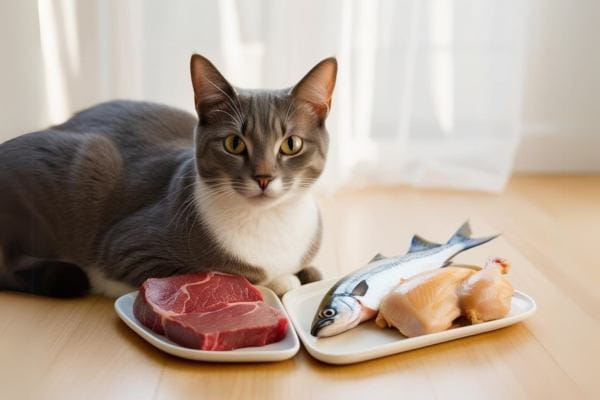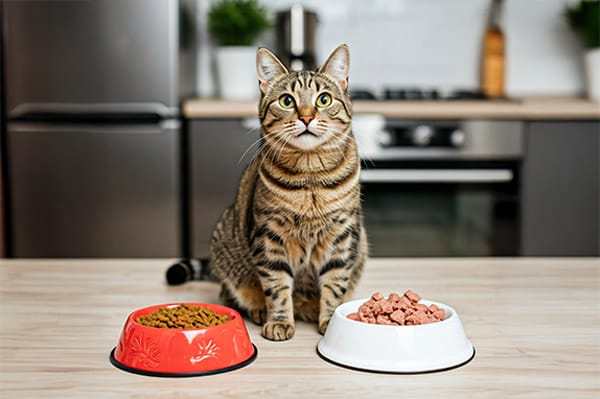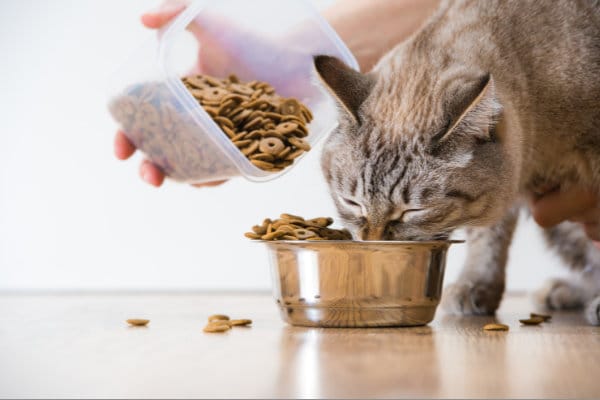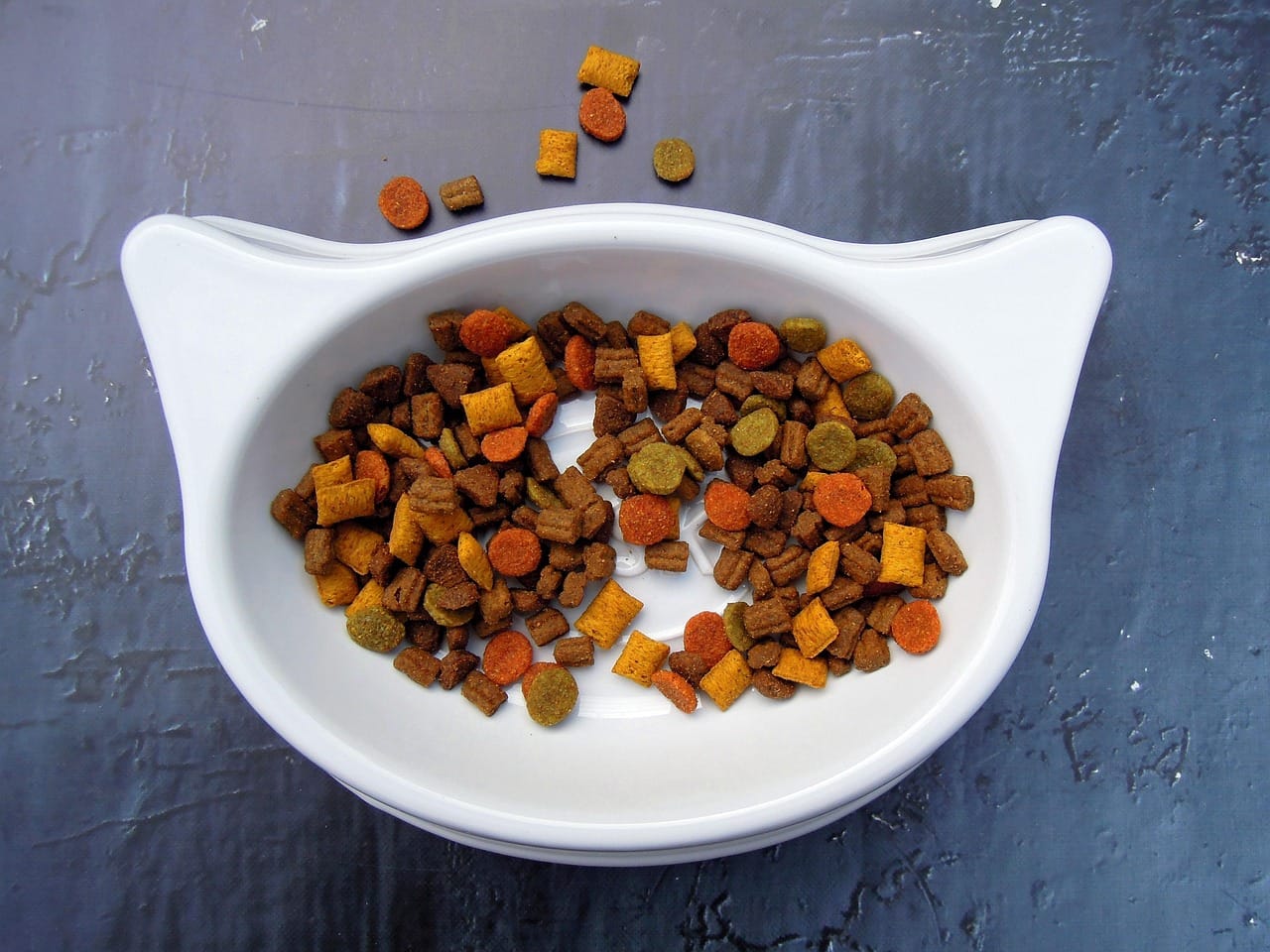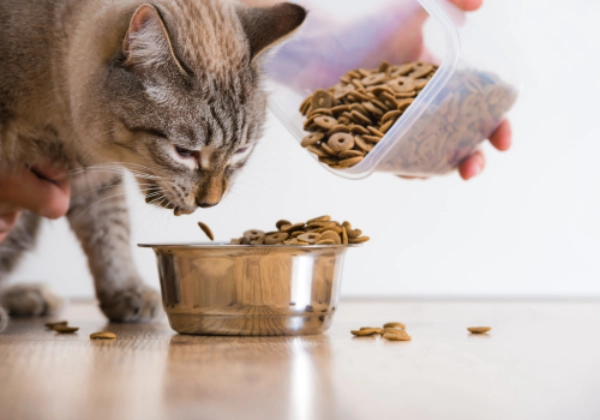As pet owners become more conscious about what they feed their furry companions, grain-free cat food has gained significant attention, reflecting broader societal trends in health and wellness. Today, a walk down the pet food aisle reveals a vast array of grain-free options, each promising various health benefits.
You may have heard of “gluten-free” and “sugar-free” products for humans, so it’s natural to wonder if a grain-free diet might be beneficial for your feline friend. But is grain-free cat food really necessary for your cat? Let’s dive into the details and explore whether this dietary choice is the right fit for your beloved pet.
What is Grain-Free Cat Food?
Grain-free cat food, as the name implies, is a type of cat food that excludes grains like wheat, corn, oats, barley, and rice. These grains are common in many cat foods and have long been a staple ingredient. In recent years, however, grain-free diets have gained popularity, largely due to the perception that grains may not be necessary or beneficial for cats. Some pet owners choose grain-free foods because they believe it is a more “natural” diet, closer to what a cat would eat in the wild. However, it’s crucial to recognize that the majority of cats do not need a grain-free diet to thrive.
Many cats are perfectly healthy on traditional cat food that includes grains. Unlike humans, who may have gluten intolerance or celiac disease, cats don’t have the same dietary sensitivities to grains in most cases. So, why all the fuss about grain-free cat food? The rise in grain-free options is often driven by marketing trends and the assumption that what’s good for humans must also be good for pets, but this isn’t always true.
Can Grains in Cat Food Cause Allergies?
One of the primary reasons pet owners might consider grain-free cat food is the concern over potential food allergies. However, it’s important to note that grains are not the most common cause of food allergies in cats. According to a study published in *Veterinary Dermatology*, corn, a grain frequently found in pet food, is actually one of the less common triggers for food allergies in cats. On the other hand, proteins like beef, dairy, and fish are more likely to cause allergic reactions in felines.
If your cat has a food allergy, you might notice symptoms like excessive itching, over-grooming, bald patches, or inflamed skin. If you suspect an allergy, consulting your veterinarian is crucial. They can help guide you through an elimination diet trial, which systematically removes certain ingredients from your cat’s diet to pinpoint the allergen. In most cases, grains won’t be the culprit, and other ingredients, such as animal proteins, may be the cause of your cat’s discomfort.
Does Grain-Free Cat Food Mean Gluten-Free or Low-Carb?
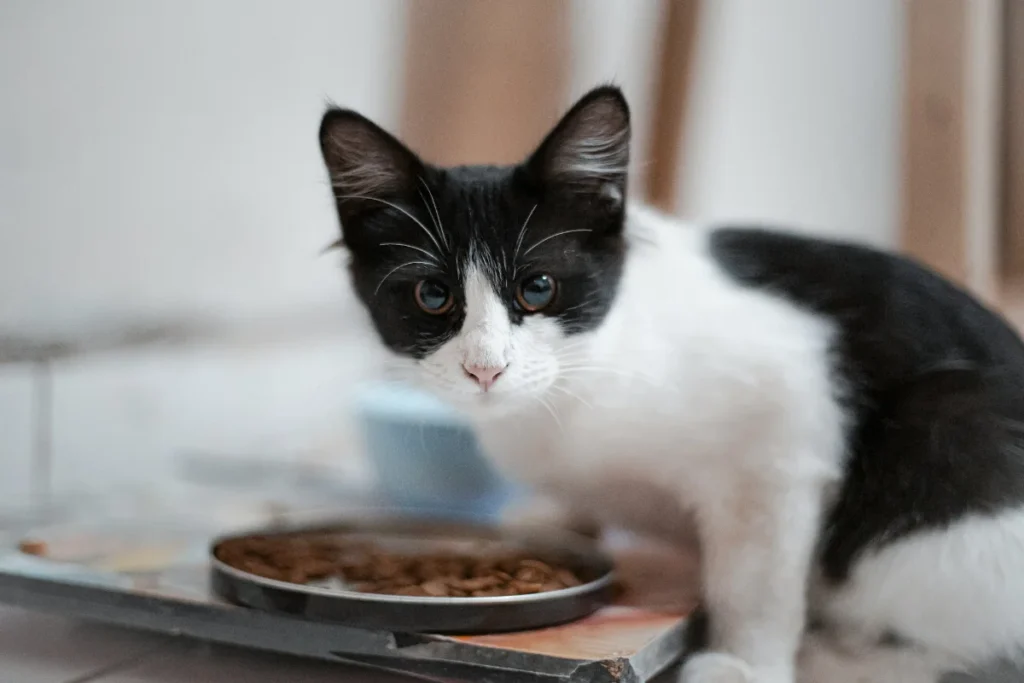
When you see grain-free labels, you might assume that these foods are also gluten-free and lower in carbohydrates. However, this is not necessarily the case. Unlike humans, cats don’t suffer from celiac disease, so gluten isn’t a concern in their diet. In fact, cats don’t need gluten-free food at all, as they generally tolerate grains well, unless they have a specific allergy (which, as noted, is rare).
Moreover, being grain-free doesn’t automatically mean being low in carbohydrates. Many grain-free cat foods substitute grains with other carbohydrate sources such as potatoes, peas, or sweet potatoes. These ingredients can sometimes lead to higher carbohydrate levels than traditional cat foods, which still contain grains.
Cats, as obligate carnivores, require a diet that is rich in protein, with only moderate carbohydrates. It’s important to check the ingredient list and nutritional content of any grain-free food to ensure your cat is getting the appropriate nutrients.
Another misconception is that carbohydrates alone lead to obesity in cats. While it’s true that cats don’t need large amounts of carbohydrates in their diet, obesity is usually the result of multiple factors, such as overfeeding, lack of exercise, and excessive fat content in the food. Simply switching to grain-free food won’t necessarily prevent weight gain unless these other factors are addressed as well.
Is Grain-Free Cat Food High in Protein?
Protein is an essential component of a cat’s diet. As obligate carnivores, cats rely on animal protein to meet their nutritional needs. Many pet owners who opt for grain-free cat food do so because they believe it will be higher in protein, but this isn’t always the case. Just because a cat food is grain-free doesn’t mean it’s automatically packed with protein.
The key to a healthy feline diet is balance. Animal-derived protein is crucial for cats, but that doesn’t mean plant-based ingredients should be entirely avoided. High-quality plant ingredients can provide essential nutrients, such as fiber and certain amino acids, that contribute to a well-rounded diet.
This is especially important for cats with health issues, such as kidney disease, where a diet too high in phosphorus (which is often found in meat) can be harmful. In such cases, incorporating vegetables or grains can provide important nutrients without overloading the cat with excess phosphorus.
How to Choose the Right Food for Your Cat?
When it comes to choosing the best food for your cat, there is no one-size-fits-all solution. Every cat has unique needs based on factors such as age, health condition, activity level, and personal preferences.
While some cats may benefit from a grain-free diet due to specific health concerns, most felines will do just fine on a portion of traditional, well-balanced cat food that includes grains.
It’s essential to consult with your veterinarian before making any significant changes to your cat’s diet. They can offer guidance based on your cat’s health profile and help you decide whether grain-free cat food is appropriate.
Additionally, when selecting cat food, look for high-quality ingredients, such as named meat sources (like chicken, turkey, or salmon) as the primary protein, and avoid foods with excessive fillers or artificial additives.
Grain-free cat food can be a good option for some cats, but it’s not inherently superior to traditional cat food. As long as your cat is receiving a balanced diet with the right proportions of protein, fat, and carbohydrates, they will likely thrive on whichever food you choose. What matters most is ensuring that the food you provide meets your cat’s nutritional needs and supports their long-term health and well-being.
Final Thoughts
In conclusion, while grain-free cat food may sound appealing, it’s not a necessary choice for most cats. Grains aren’t typically a cause for concern in a cat’s diet, and in many cases, protein sources such as beef, fish, or dairy are more likely to trigger allergies.
Grain-free diets don’t guarantee higher protein content or lower carbohydrates, so it’s important to read labels and choose foods that prioritize your cat’s overall nutritional needs. Always consult with your vet when making dietary decisions for your cat to ensure they are getting the best possible care.

